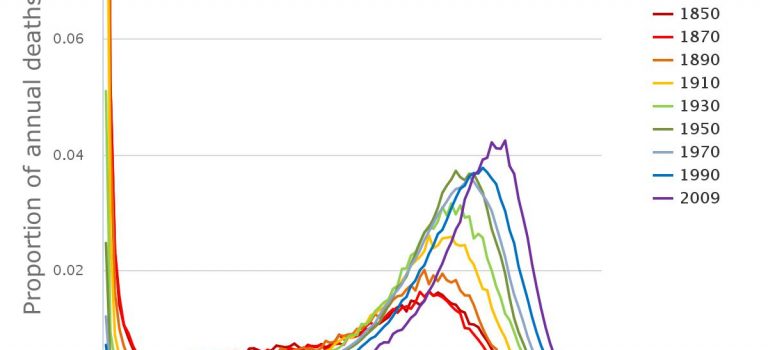Every month a question on ageing is answered by an expert from Leyden Academy on Vitality and Ageing. This months question is ‘Do health care costs increase with ageing?’
Do you have a question about aging? Please send an email.
In news releases and reports the rise of care costs is mainly explained by the growing number of elderly. At first glance, this seems very logical. Step 1: Older people are more likely to get sick and have a higher chance of a chronic disease. Step 2: The care cost thus increase when people grow older. Step 3: If in the Netherlands the number of older people continues to increase, so will the healthcare costs. This reasoning seems to be confirmed by the figures. The number of people older than 65 in the Netherlands increases from 15% in 2009 to 24% in 2040.[1] Of the lifetime health care costs of Dutch people, 72% is made after the age of 65.[2]
1 + 1 + 1 = 3, right?
Not quite, if we look at the calculations of two former Dutch politicians: Roger van Boxtel and Willem Vermeend.[3] According to them, the care costs increased 6.4% annually between 2008 and 2011. Of this percentage, only 0.7% can be contributed to ageing. The other 5.7% is due to legitimate economic changes (such as inflation and the Baumol effect) and volume growth (more people are seen and treated by the doctor or therapist, or hospitalised). Patients have become more demanding and medical innovations have increased the possibilities. Of course, this is a blessing. Economic growth must be in the service of our health, health care cannot serve economic growth.
Nevertheless, we do not want our premiums to increase. If, in the upcoming years, we can achieve economic growth and we maintain the volume growth, then health care costs do not have to rise, despite of the ageing population. In the Netherlands, two major changes can reduce the average cost of elderly care in the long term. Firstly, the Dutch government want to set priorities in the field of care. Elderly care will have to deal with huge cutbacks. More is expected from the elderly themselves, as well as from the citizens, who must support the elderly more actively. More important than cutbacks is ending bureaucracy, which causes inefficiency and breaks down the quality of health care. Experiments with district nurses, cooperatives and abolition of rules and regulations are current examples.
Secondly, the elderly community itself is changing. It is very likely that the elderly of the future will be more independent. Also the life expectance of men is increasing, reducing the number of care-dependent widows. In addition, research shows that a large part of health care costs is made just before death. Sometimes treatments at very high ages is unnecessary and not in the best interest of the patient. More insight into the effectiveness of treatments in older age, and associated improvements in protocols, are needed.
Improving healthcare and reducing costs at the same time is within reach!
Herbert Rolden
Economist and PhD student Leyden Academy on Vitality and Ageing
[1] Central Bureau of Statistics
[2] National Institute for Public Health and the Environment
[3] Willem Vermeend & Roger van Boxtel. Uitdagingen voor een Gezonde Zorg. Amsterdam: Lebowski, 2010.
